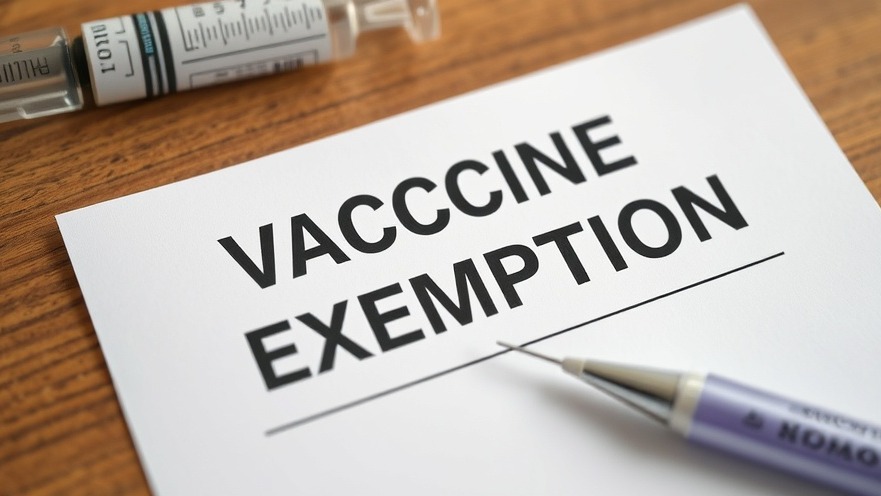
Texas Approves a Streamlined Process for Vaccine Exemptions
In a significant shift for parents in Texas, the state government has launched a downloadable form to exempt children from mandatory vaccinations required for school enrollment. Previously reliant on an antiquated mail-in system, parents can now effortlessly download the exemption form from the Texas Department of State Health Services (DSHS) website—saving both time and resources. This new measure was introduced by state Rep. Lacey Hull through House Bill 1586, which went into effect on September 1, 2024.
Implications of the New Process
The downloadable form represents a critical change, as requiring parents to get it notarized remains in place, but it eliminates the lag time associated with waiting for the state to mail it. This process triumphed after advocates, like Rebecca Hardy, executive director of Texans for Vaccine Choice, lobbied for accessibility. As Hardy stated, the new law “creates more empowering changes” that align parents’ rights with easier access to pertinent information.
Information Access: A Double-Edged Sword
Alongside the exemption form, DSHS also released a document illustrating the benefits and risks of vaccinations. While Hardy praised this educational component, she emphasized that parental choice should remain at the forefront of health decisions. Meanwhile, Terri Burke, executive director of The Immunization Partnership, expressed her satisfaction that parents now have resources at their fingertips to understand both sides before making this important decision. This balance of accessibility and information has sparked discussions on public health and parental rights.
Recent Trends in Vaccine Exemptions in Texas
The urgency of the new exemption form can partly be understood through the backdrop of recent public health crises. Following a measles outbreak that tragically claimed the lives of two children earlier this year, the need for timely and efficient health protocols has never been more pressing. Vaccine exemption requests have drastically increased, with requests for exemption forms jumping from 45,900 in 2018 to over 93,000 in 2024, with a notable 17,197 requests occurring just in July 2024 alone—a 36% increase from July 2023.
Challenges in the Broader Context of Public Health
Texas now finds itself leading the nation with over 25,000 kindergarten students who remain unvaccinated against measles, raising alarms about the potential for future outbreaks. The current vaccination rate of 93.24% is the lowest it has been since 2011. Public health officials assert that maintaining a herd immunity standard requires a vaccination rate of over 95%. The reluctance among some families to vaccinate their children reflects a broader discussion on personal choice versus community health responsibilities.
Moving Forward: The Intersection of Law and Public Health
As legislative changes unfold, the role of public health education becomes more pertinent. Many parents may consider personal beliefs, misinformation, or fear more than scientific evidence when deciding on vaccinations. This underscores the necessity for continued advocacy and education on the importance of vaccinations, particularly in light of heightened accessibility to exemption processes. Advocates emphasize that a well-informed public is crucial for the health of communities.
Looking Ahead: Strategies for Advocacy
The new downloadable exemption form serves as a gateway for ongoing debates surrounding parental rights, public safety, and vaccination policies. As more families opt for exemptions, stakeholders in public health, education, and legislation may need to reassess existing frameworks and consider innovative strategies to cultivate a resilient response to public health challenges. Only through collaboration and informed discourse may we hope to improve vaccination rates in Texas and ensure the safety of our most vulnerable populations.
Engaging with both sides of the vaccination discourse is essential for parents to make informed decisions. As public health advocates highlight, understanding the impacts of low vaccination rates can inform parents' choices in ways that protect community health and individual rights alike.
 Add Element
Add Element  Add Row
Add Row 



Write A Comment